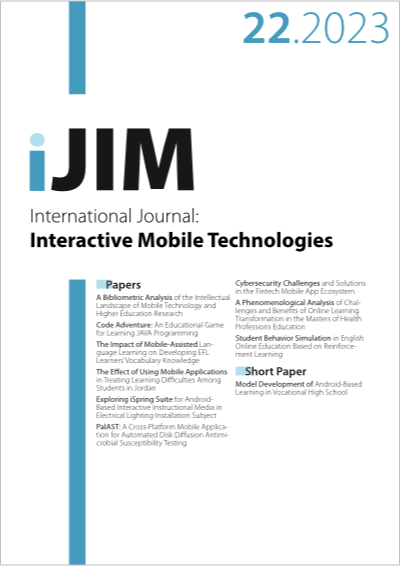Student Behavior Simulation in English Online Education Based on Reinforcement Learning
DOI:
https://doi.org/10.3991/ijim.v17i22.45303Keywords:
Reinforcement, Simulation Model, Rewards and Framework, BehaviorAbstract
In class, every student's action is not the same. In this era, most courses are taken online; tracking and identifying students’ behavior is a significant challenge, especially in language classes (English). In this study, Student Behaviors’ Simulation-Based on Reinforcement Learning Framework (SBS–BRLF) has been proposed to track and identify students’ online class behavior. The simulation model is generated with various trained sets of behavior that are categorized as positive and negative with Reinforcement Learning (RL). Reinforcement learning (RL) is a field of machine learning dealing with how intelligent agents act in an environment for cumulative rewards. With a web camera and microphone, the students are tracked in the simulation model, and collected data is executed with RL’s aid. If the action is assessed as good, the pupil is praised, or given a warning three times, and then, if repeated, suspended for a day. Hence, the pupil is monitored easily without complications. The research and comparative analysis of the proposed and the current framework have proved that SBSBRLF works efficiently and accurately with the behavioral rate of 93.2%, the performance rate of 96%, supervision rate of 92%, reliability rate of 89.7 % for students, and a higher action and reward acceptance rate of 89.9 %.
Downloads
Published
How to Cite
Issue
Section
License
Copyright (c) 2023 Wenjing Wang

This work is licensed under a Creative Commons Attribution 4.0 International License.



